Do retinol and rosacea work well together? Can this skincare ingredient be supportive for sensitive skin? Navigating skincare can be particularly challenging for those with rosacea or any type of sensitive skin. You may have even tried a wide range of products to no avail. The redness, sensitivity, and aggravation persist.
In this blog post, I’ll dig into the potential benefits and risks of using retinol for rosacea so you can make an informed decision about whether retinol is a good option for your skincare routine.
What is Retinol?
Retinol is a form of vitamin A. It belongs to a group of retinoids. Common uses of retinol in skincare include anti-aging and acne treatment.
It is commonly included in skin-clearing and anti-aging skin preparations to improve features such as pimples, large or clogged pores, dark spots, scars, wrinkles, and fine lines.
How Retinol Works at a Cellular Level
Retinol is changed by the body into retinaldehyde and then into retinoic acid. Retinoic acid is the form that binds to skin cell receptors and triggers changes. Some people convert retinol into retinoic acid faster than others.
Benefits of Retinol for Skin
Renowned for its transformative effects, retinol has become a cornerstone in skincare routines worldwide. It’s also often talked about on social media platforms like Instagram and TikTok—but how does it actually benefit your skin?
Cell Turnover: Retinol speeds up skin cell turnover (shedding or sloughing of older cells and replacement with new ones). Months of consistent use typically result in skin with a smoother texture.
Collagen Production: The topical application of retinol increases the production of collagen and elastin in the skin. This decreases wrinkles and fine lines and also increases skin elasticity.
Acne Reduction: Retinol balances the production of sebum. This decreases pore-clogging and shrinks the size of pores.
Potential Risks of Retinol and Rosacea
While there are some great benefits, when it comes to retinol and rosacea—or retinol and any skin type, there are also some pretty clear risks. While the benefits are appealing, don’t miss this important information too.
Irritation: With retinoids, it’s possible to get too much of a good thing. When first exposed to topical retinol, the skin must adjust to a faster pace of cell turnover. Too much, too often, or too much potency, however, is likely to cause red, dry, peeling skin that itches or burns. The adjustment period is likely to last several weeks for most people, but some people probably shouldn’t use retinol at all, such as people with hyper-irritable or extra sensitive skin—as in rosacea.
Sensitivity: Retinol causes skin to be far more sensitive to the sun’s UV rays. Using retinol necessitates extreme vigilance about sun protection and avoidance.
Dosage and Formulation: Start low and go slow with retinol. Over-the-counter (OTC) retinol products are less potent than prescription retinoids. If you want to try retinol, start with OTC at a concentration at or less than 0.3%, and proceed cautiously.
Finding the Best Retinol Products for Skin with Rosacea or Sensitivities
While retinol isn’t the best for sensitive skin or folks with rosacea, there are still ways you may be able to use these products while minimizing drawbacks or harmful effects. Here are some strategies to consider if you want to use retinol-based products but avoid risks like facial redness, higher sensitivity, and general irritation.
Consult a Dermatologist: People with rosacea and other skin problems should consult a dermatology clinician, like a doctor, Nurse Practitioner (NP), or Physician Assistant (PA), before embarking on retinol. It should not be applied to compromised skin and may worsen some conditions. Also, there are many retinol products available and the formula should be chosen carefully to avoid ingredients known to cause irritation and allergy.
Do Patch Testing: Before jumping in with both feet and risking a regrettable reaction, test a small amount on an area of thicker skin. Avoid skin around the eyes, mouth, and neck, as these areas have thinner skin.
Follow a Gradual Introduction: Start with a thin layer of retinol twice a week, at night. Gradually progress to a higher concentration and/or more frequent application as tolerated.
Additional Lifestyle Changes to Calm Rosacea
While the idea of finding the perfect product to support your sensitive skin is great, it’s not always the case. Conversely, it doesn’t always take a medical rosacea treatment to manage your symptoms either. You can calm your skin condition with other small changes as well. Luckily, small shifts can have a significant impact, so before you buy that trending skincare product, consider these ideas first.
Try Other Topicals: Consider products with bakuchiol as a retinol alternative if you have sensitive skin. Bakuchiol provides some of the same anti-aging benefits as retinol, with less chance of unpleasant side effects.
Make Lifestyle Changes: Find and minimize the things that cause a rosacea flare or rosacea symptoms with lifestyle changes. Rosacea is a chronic condition characterized by flare-ups. These flare-ups are often associated with triggers. For example, many weather and environmental conditions are problematic for rosacea sufferers, including extremes of temperature (especially heat), wind, and high humidity.
Though there is variation from person to person, other common triggers to watch for are:
- Emotional stress
- Heavy exercise
- Alcohol consumption
- Spicy food
The National Rosacea Society surveyed affected people to identify the most common triggers and presented their findings nicely here: Rosacea Triggers Survey. Simply avoiding things that make your rosacea flare up can be an incredibly helpful first step.
Follow Rosacea-Care Best Practices: Whether you’re using a topical medication or just making simple lifestyle changes, there are also best practices for caring for your sensitive skin that you don’t want to ignore. Here’s a brief list of rosacea skincare best practices to check out.
Do Retinol and Rosacea Work Together?
While retinol has many potential skin benefits, it’s not for everyone. It’s probably best reserved for anti-aging of otherwise problem-free skin or used under the guidance of a clinician for acne-prone skin. People with rosacea or other sensitive skin conditions are usually better off avoiding it.
Generalizations about specific ingredients and formulas are just that. Each person is individual and what agrees or disagrees with one person or supports their overall skin health may yield a very different result for another. Testing a new product at the lowest concentration and smallest amount, on a carefully chosen area of skin, is one way to avoid skin catastrophe.
For sensitive or problem skin, a clinician licensed in skin medicine can help safely navigate the many options. Finally, if you want to find a soothing product for your rosacea-prone skin, check out our trio of skincare products, designed specifically for you—by a fellow rosacea sufferer.

Shannon L. Johnson NP-C
Founder & Formulator, MeridaSKIN
Shannon is a nurse practitioner, and much of her career has served vulnerable populations at a community health center. She holds degrees from the University of Pennsylvania and Simmons University, and completed post-graduate training at the University of Massachusetts Boston. She tackled the science of cosmetic formulating to solve her own skin struggle with rosacea. Shannon was born in Oregon, raised in Eastern Massachusetts and has passionate ties to the Pacific Northwest, New England, and the mid-Atlantic. She lives on Boston's North Shore with her husband, two kids and mischievous Wheaten Terrier. She and her family pass the seasons by playing in water (liquid and solid).

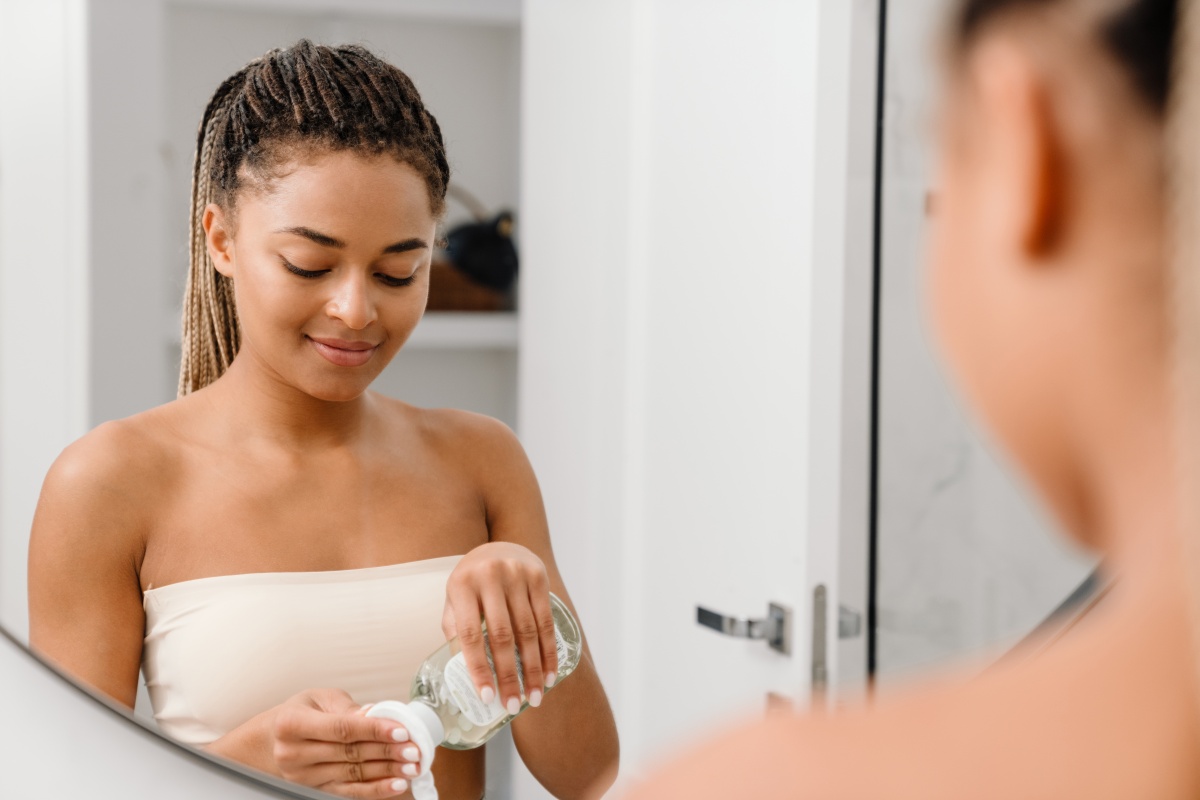
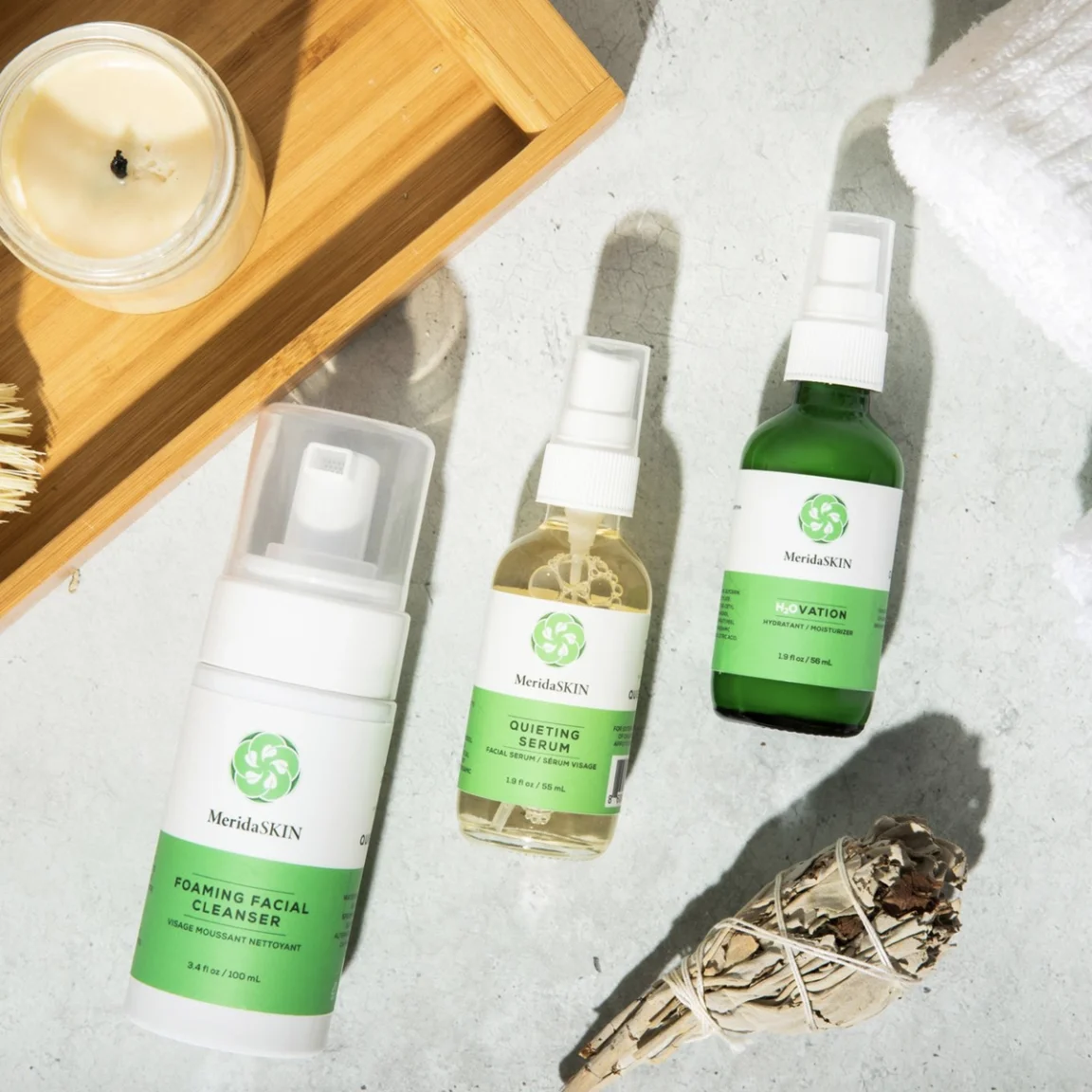
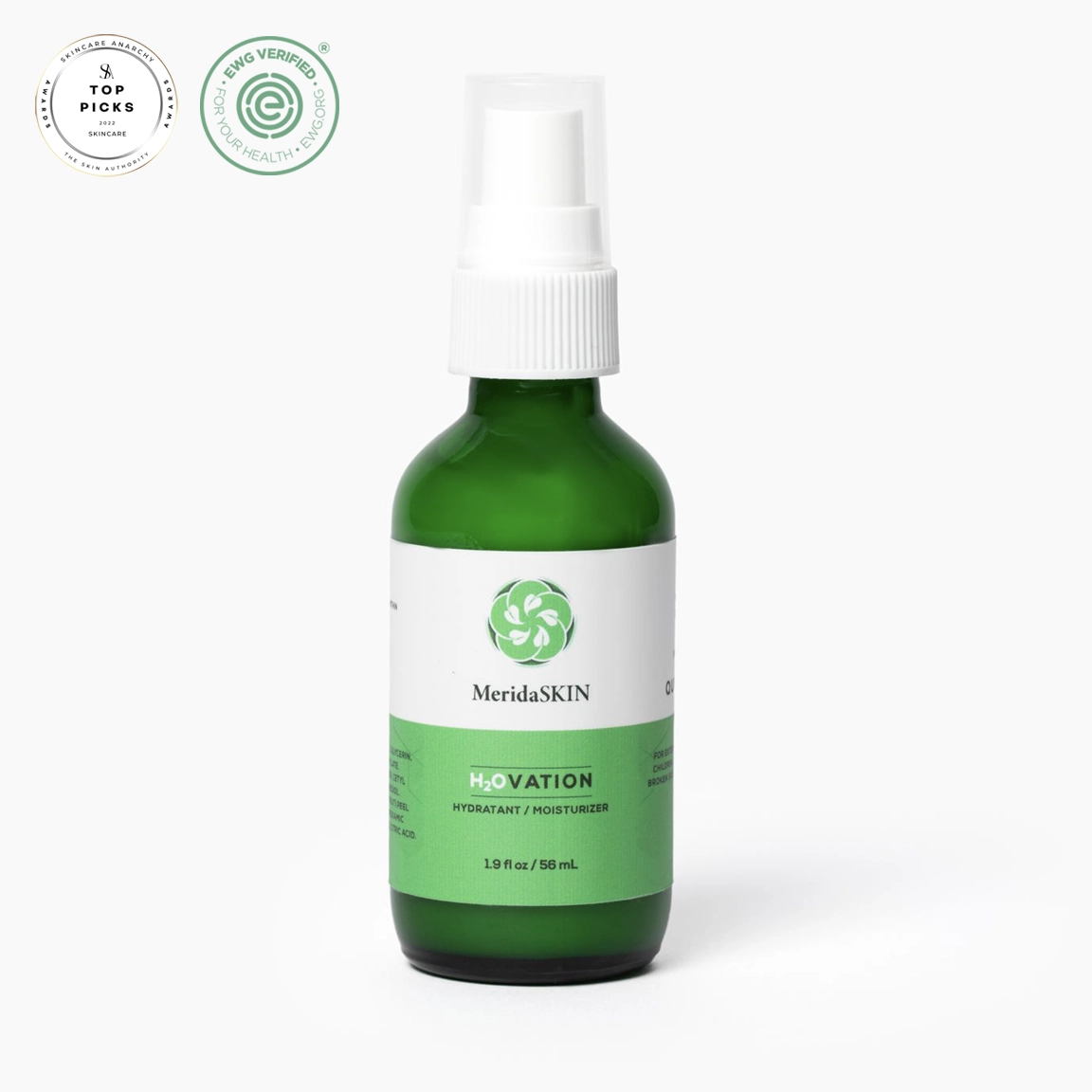
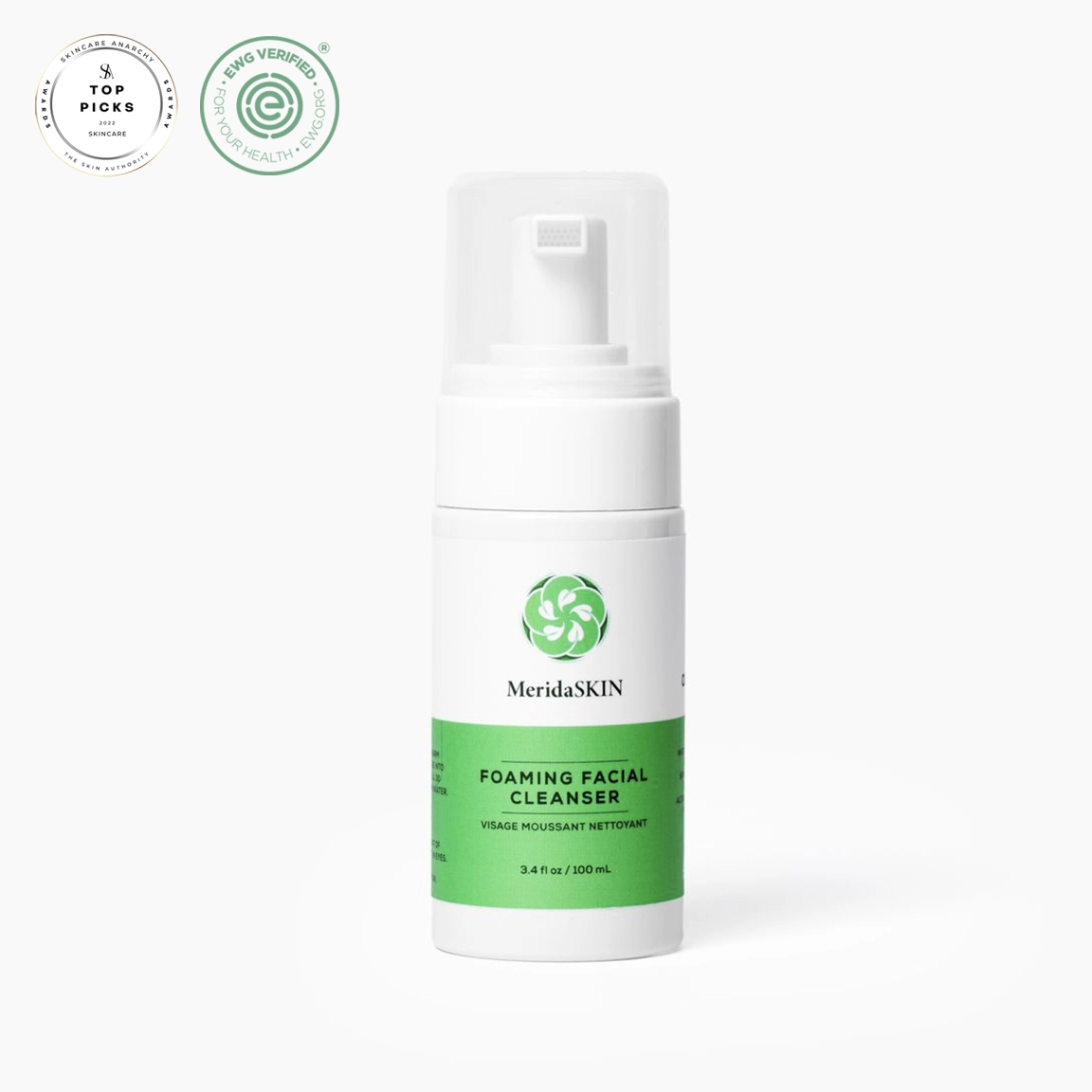
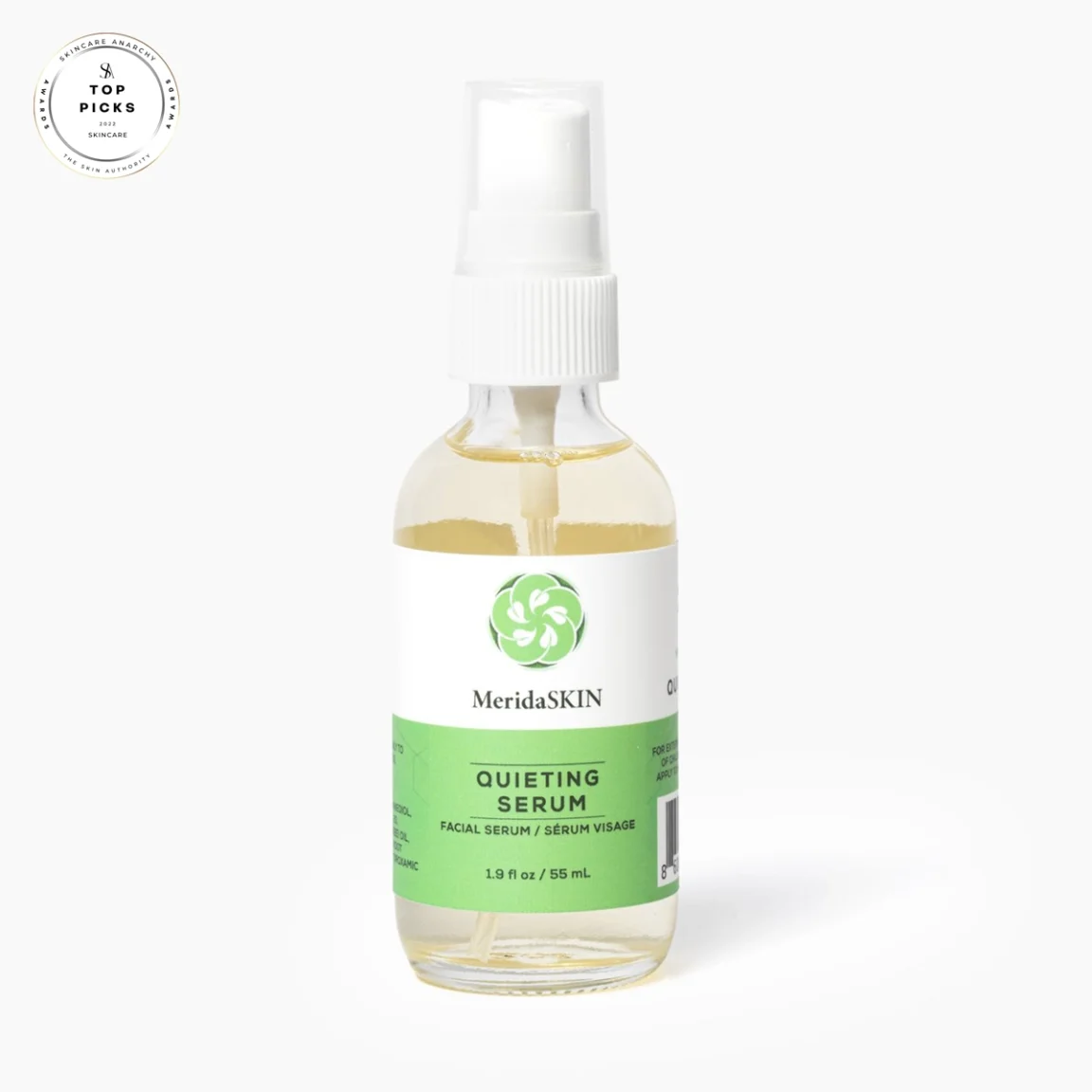
Recent Comments